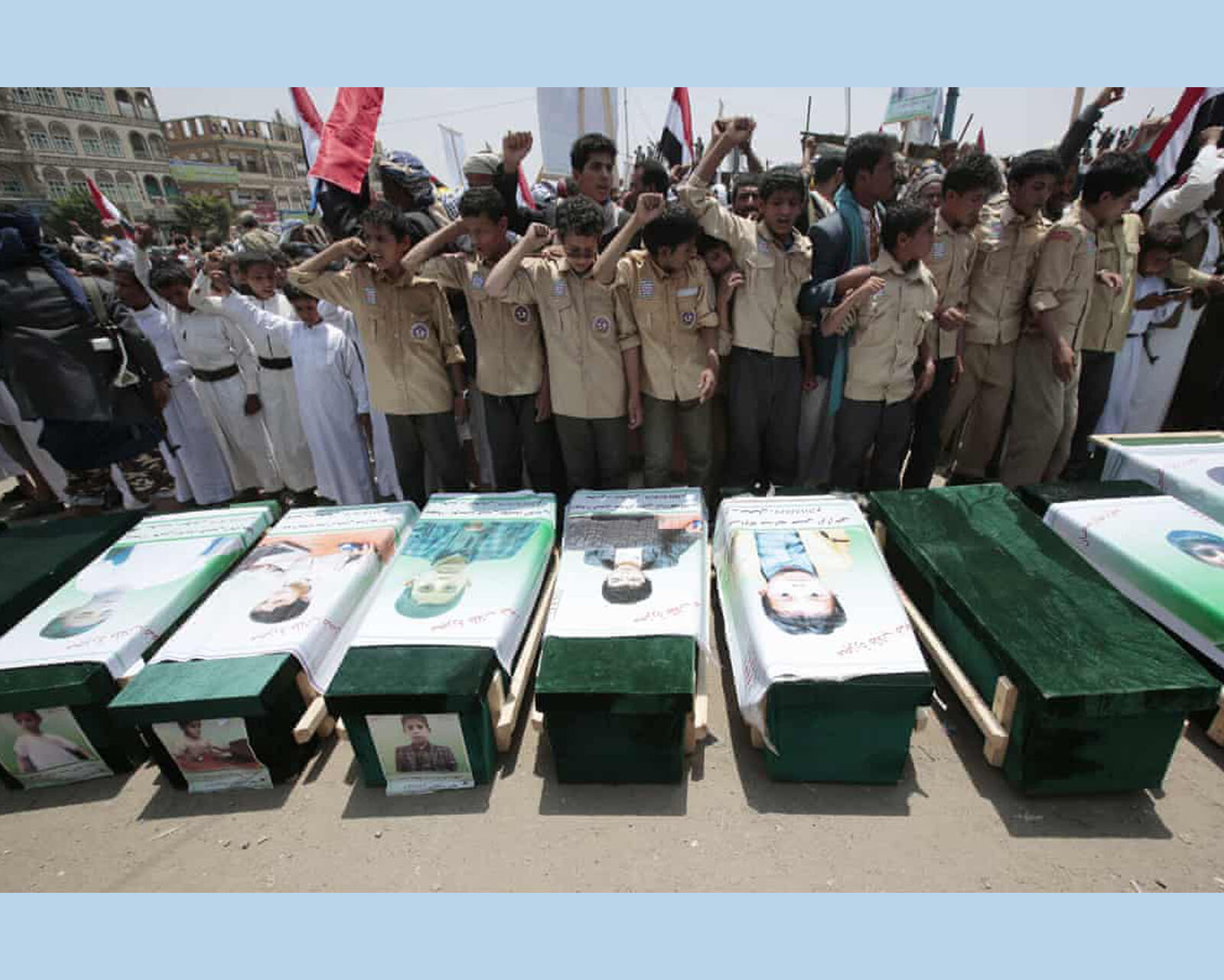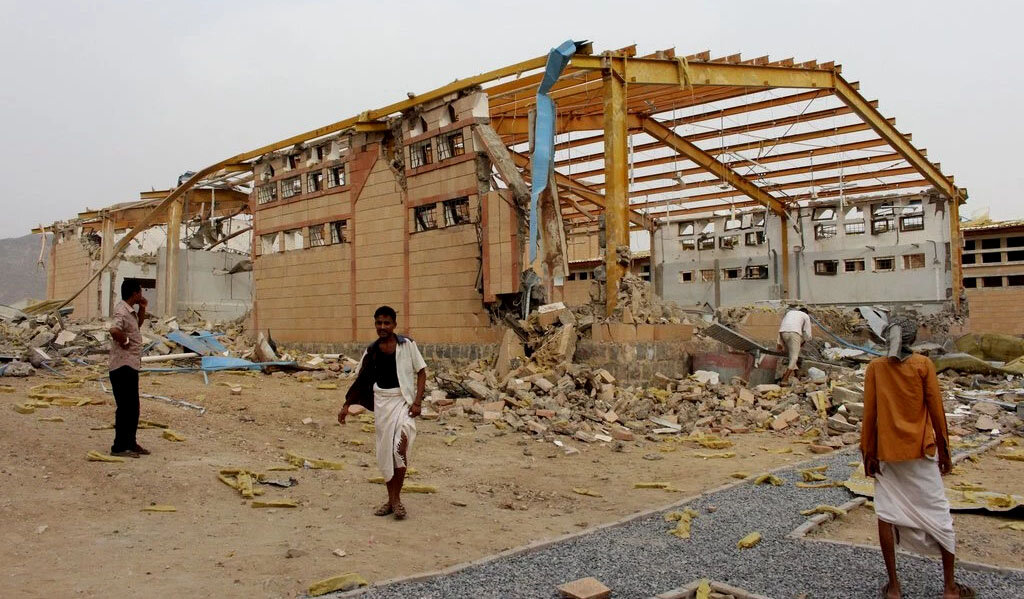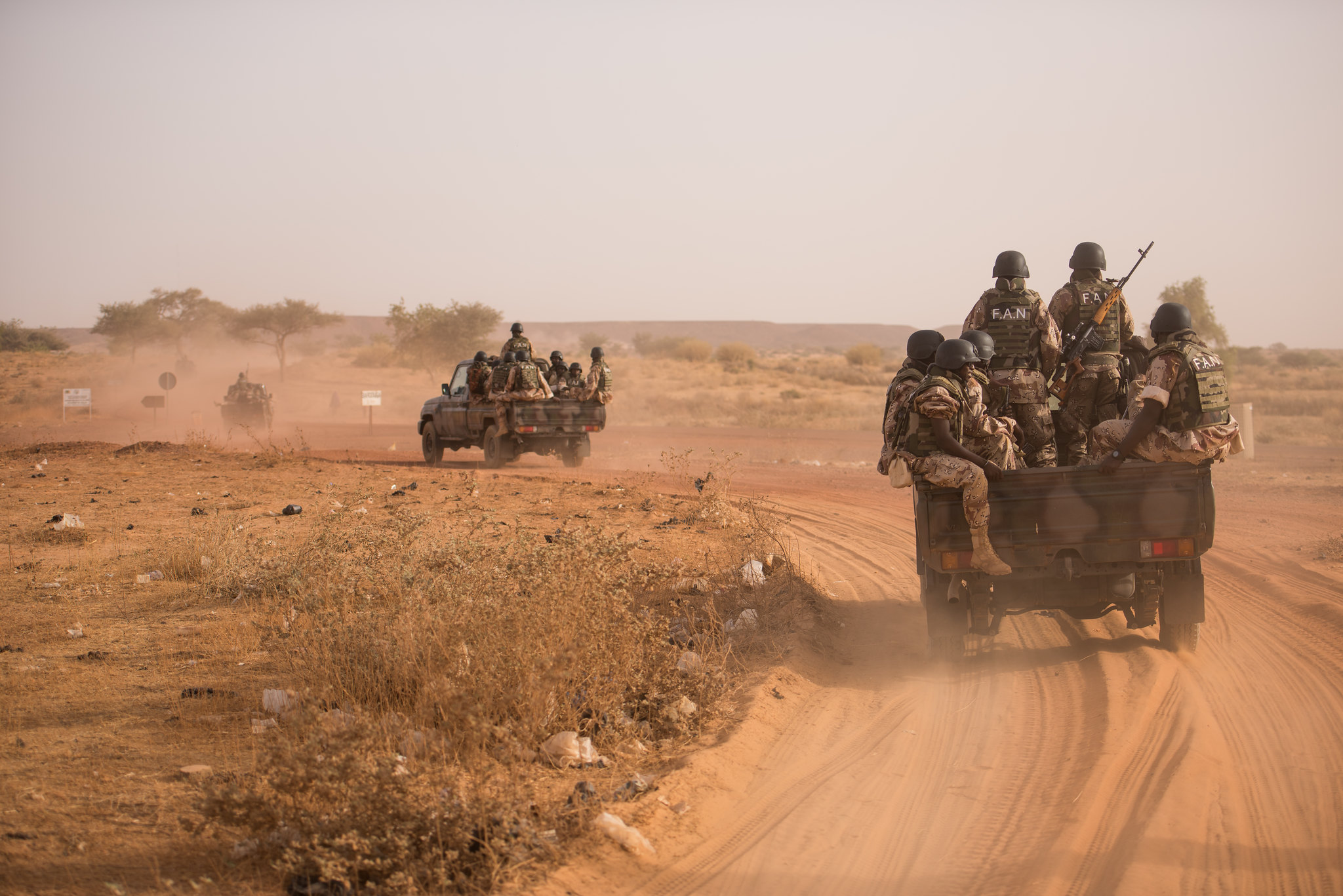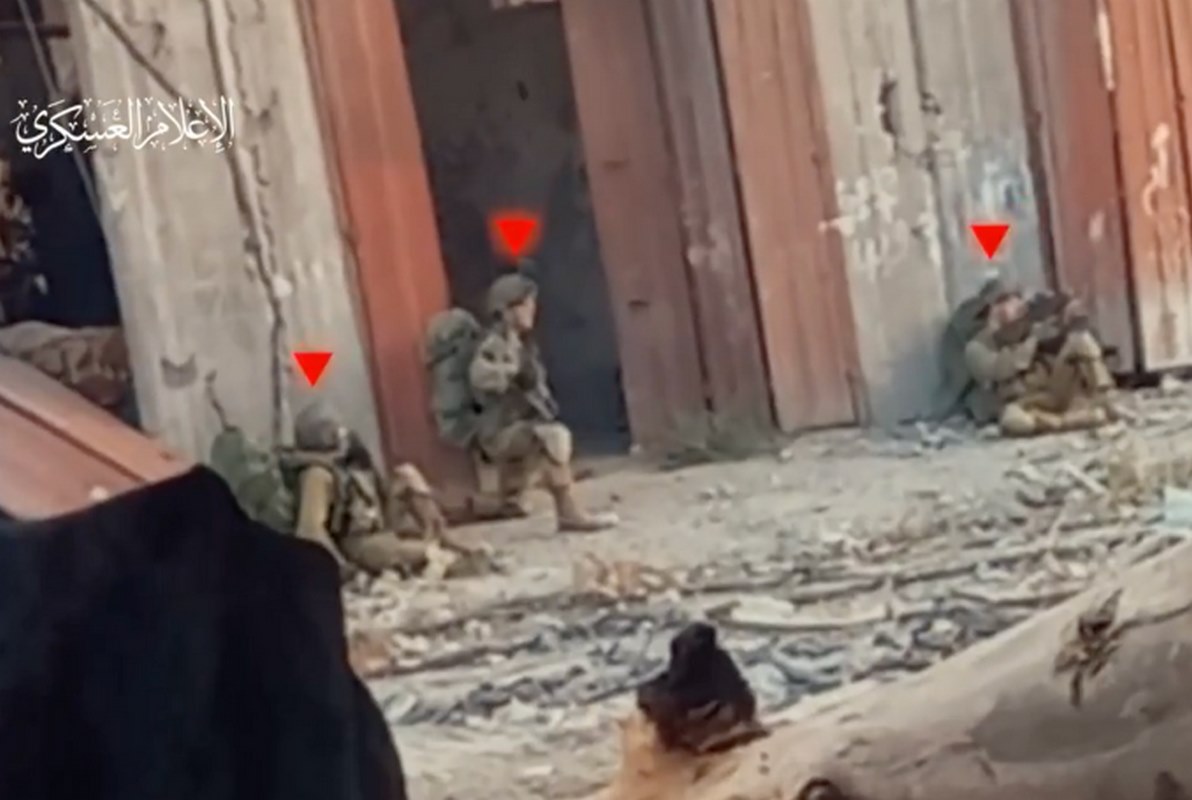PICTURED: Yemeni children holding a funeral ceremony for Yemeni children that were killed in airstrikes. Photo credit The Guardian.
WASHINGTON D.C. December 2nd. 2020. The United Nations’ World Food Program (WFP) leader met with Sec. of State Mike Pompeo on Tuesday in likely desperate bid to try and shift Trump’s confusingly adamant stance on the War in Yemen and get the Houthis removed from the U.S. list of terror groups.
70% of the country’s population lives in areas controlled by the Houthis who have been in power for close to 5 years. Their designation as a terror group means that there are many difficulties in the way of WFP’s attempts to get food to a starving, besieged population.
The Houthis are predominantly Shiite, and Trump’s maximum pressure campaign on Iran, the regional Shia powerhouse, has involved maximum pressure on the Houthis as well who Trump’s staff have repeatedly claimed are funded and work at the behest of Iran, despite providing no evidence to support the claims.
The UN and the WFP have not officially declared a famine in Yemen, but the country could be dangerously close to one, as the UN reported this week that the number of civilian dead, particularly children under the age of 6, is almost at a quarter million, most from deprivation not conflict, and that over 3 million people are without food security.
However this hasn’t stopped the UAE, Saudi Arabia, and particularly the United States from blockading many of the ports of entry into the country, stopping international aid in its tracks.
The UN reported this year around 750 incidences of restrictions on the movement of international goods and services attempting to enter the country to help the population.
One man’s terrorist
The Houthis led and armed uprising to evict the Saudi-backed dictator of the poorest country in the Middle-East in 2015 after elections were held in which the ballot featured only the dictator, Mansour Hadi’s picture, and only one box for checking.
The Saudi-led, American-armed “Coalition to Restore Democracy in Yemen” was formed shortly after to try and restore Hadi in the country, but was reduced to mostly bombing civilian infrastructure such as houses, hospitals, roads, grain silos, flocks of animals, and international aid stations.
While these are acts punishable as crimes against humanity, the blockades by the triad of nations are likely the cause of the majority of the deaths, as they brought about two terrible cholera epidemics, as well putting the country on the brink of famine.
Aisha Jumaan, president of the Yemen Relief and Recovery Foundation, told Antiwar in October much the same.
“The report does not mention the blockade on Yemen as one of the factors impacting famine, although, it is the main cause as it destroyed the economy,” Jumaan said. “This is typical of UN reports, not acknowledge the negative role of the Saudi/UAE in Yemen. However, they always thank them when they donate to the Yemen relief efforts”.
It’s not at all obvious that the Houthis are engaging in terrorist acts. Last year featured a slew of Houthi retaliatory attacks against Saudi territory, including a 72-hour long combined-arms ground assault in which they not only took hundreds of Saudi soldiers and officers prisoner, but according to local and international reports at the time, transferred them to “secure undisclosed locations to protect them from Saudi air strikes.”
Later a prisoner release was facilitated between the two warring parties, further distancing themselves from terrorist behavior.
In the same way that Trump had every reason on earth to allow the War in Yemen to end when the Senate and House passed a War Powers Resolution prohibiting the unrelenting sale of advanced weaponry to Saudi Arabia, he has every reason on earth to end the terror designation, or at least the blockade.
Trump and his cabinet have deep anti-Iranian sympathies, so the removal, however warranted, is unlikely.




